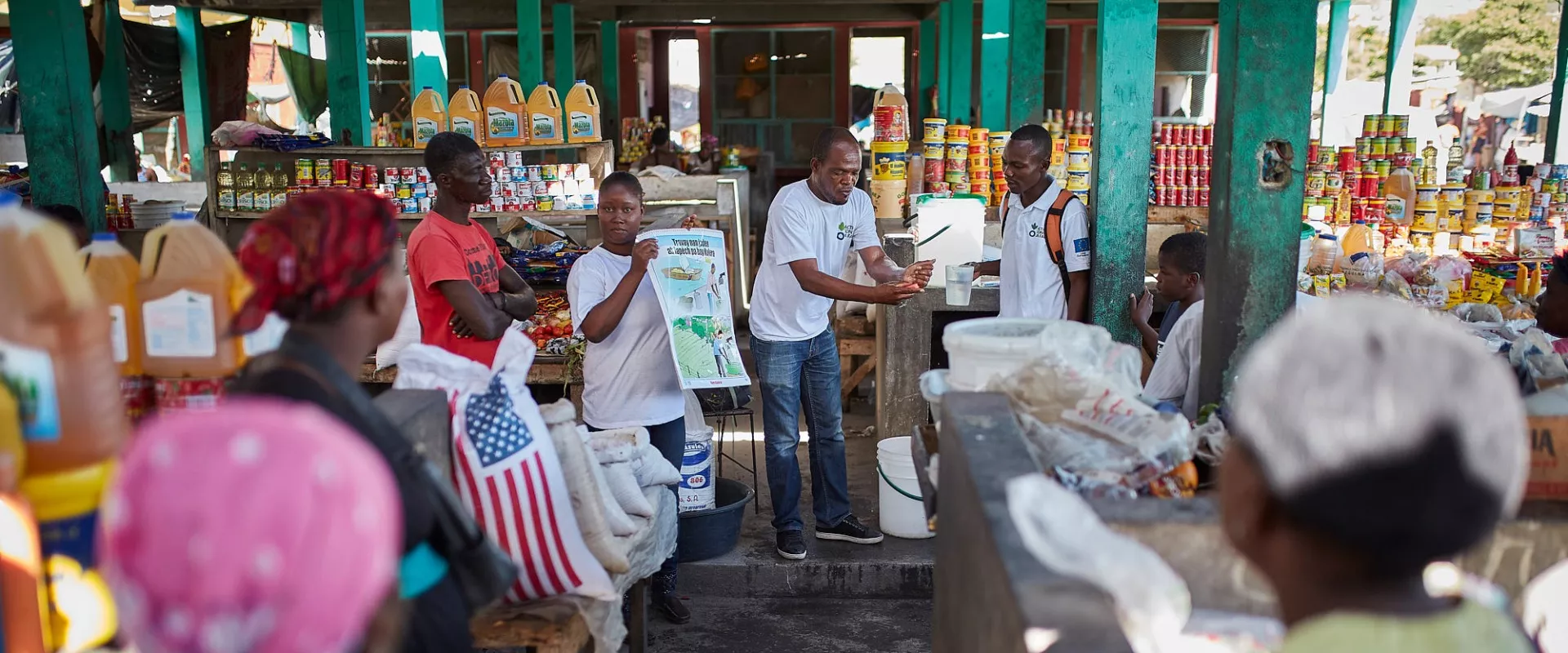Across Haiti, a staggering 300,000 people were internally displaced by ongoing unrest at the end of last year, and now heightened violence has uprooted 15,000 in Port Au Prince the past week alone. Many are being displaced for the second time, compounding their trauma and loss, and putting them in an even more vulnerable position. As needs rise, extreme insecurity is making it even more difficult to deliver urgent humanitarian aid, particularly in and around the capital of Port-au-Prince.
Today, about 44 per cent of the population – approximately 4.9 million people – is dealing with hunger levels that have reached the crisis stage – or worse. Now, violence is making a bad situation even worse.
Increasingly limited access to food, clean water, and adequate sanitation has rendered people especially vulnerable to hunger and deadly diseases like cholera. Last year, the country reported around 4,000 cholera cases, largely centered around the Port au Prince area. The highly contagious disease is a serious concern, particularly within displacement camps, since it can be deadly when untreated. Malnutrition puts people at increased risk, making hunger-related interventions all the more urgent.
Despite the growing need, aid to Haiti has decreased dramatically. In 2023, only 34% of Haiti’s hunger-related funding appeals were fulfilled, leaving a hunger funding gap of 66%. Adequate funding is essential to save lives and enable a concerted response from NGOs in the country.
Action Against Hunger has been in Haiti since 1985, working to reduce hunger and improve health through programs that range from nutrition, water, sanitation and hygiene (WASH) to creating more sustainable livelihoods that can prevent hunger and promote wellbeing.


